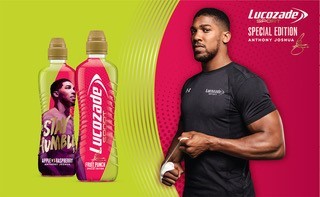Opinion: Unlimited editions

Brands can harness the power of recognition and exploit young people’s incessant desire for the new through clever use of limited editions Chantal Bordet and Emanuela Seminara say
We live in an extreme world where Gen Z’s techno addiction is fuelling an incessant quest for instant gratification. As Gen Z and millennials become a larger part of the consumer population, we expect interest in stunt- or story-based brands will intensify. Today’s hungry youth expects brands to stand up and stand out and remain dynamic to engage their interest.
In this climate, brand owners need to adopt new strategies to keep their brands nimble and this is where limited editions come into play; usually with a minimal turnaround time and price tag.
Through limited editions brands can recruit and specifically appeal to the desire of Gen Z and millennials for independent and unique products, with less radical changes to their brand proposition.
Limited editions should be a brand-building moment and a way to amplify and dramatize the brand identity and values. Gen Z and millennials have grown up in a fast-moving world where you can experiment, so naturally they are more creative and the desire to try new things and feel unique directly informs their purchases. This presents a natural opportunity for testing new flavours and it is exactly what Lucozade Sport did when it launched its limited edition “Fruit Punch”.
Launched in April 2019 to coincide with brand ambassador Antony Joshua’s world heavyweight champion fight, BrandMe’s design served up a new flavour with the champion’s focus and determination and his ‘Stay Humble’ ethos, tapping into the young consumers’ desire for novelty as well as aligning the brand with AJ’s inspiring values and personality. After an initial defeat, Anthony Joshua rewrote history and the champion’s reputation and special edition apple and raspberry flavoured drink lived on.
Demand for camera-friendly limited editions is highest among young consumers, as is their fear of missing out, so brands have latitude to tap into this well-documented FOMO. At the same time, the digital age is driving consumers’ aspiration for the ‘made-for-me’ trend and nothing shouts special better than a personalised version of an old classic. Coke started the trend in 2013 with names printed cans and is still going this Christmas. Its drive to get personal continues and has evolved with the times. The recent Diet Coke packaging carries popular phrases people use to express themselves especially on social media, like ‘yaasss’, ‘ok but no’ and ‘can’t even’. The concept of a limited edition should be about determining what consumers want and be totally consumer-centric and relevant. So be part of the celebration or the cause that resonates with your brand. Celebrating cultural, sporting and seasonal events is one way to bring you closer to consumers and build a dialogue.
Do it when others don’t. Use limited edition to cater to your audience’s specific needs: the more personal, the bigger the impact it will have on your brand building activity. Be proud, celebrate your quirks as well as your consumers’ quirks.
British Airways marked its 100th anniversary in tandem with Marmite, the most confiscated brand at London City Airport. For Brits travelling abroad, it is clear they cannot go without the trusted spread. So, BA and Marmite teamed up to create a create a limited-edition packaging design to celebrate the airline’s anniversary with the centenary jar now conveniently sized to fit within the liquid allowance on planes.
Coinciding with the launch, London City Airport gave all customers at security gates the chance to swap their over-sized jars for BA’s travel-friendly version.
Brands need to have a few well-established visual assets that are blindly recognised before they can start to play the limited edition game. Without these strong and distinctive assets, a limited edition design might not be recognised as the original brand.
Does your brand own a colour, a font type, a certain pattern, a brand icon, a distinctive shape or ideally a combination of a few of these that a creative team can play with and reinterpret?
Each brand needs a different approach because each brand has a unique DNA and set of memorable assets. To have the greatest impact while still being instantly identifiable, limited edition design must respect the brand’s most recognisable equities.
Successful limited editions marry the familiar and the unexpected and as brand custodians, delivering both continuity and disruption is part of the ongoing branding challenge.
Consumers are spoilt for choice so continuously reinventing your brand is imperative. Taking their wants and needs into account will mean the difference between being noticed or being a thing of the past.
Chantal Bordet is brand development director and Emanuela Seminara is junior strategist at BrandMe.














